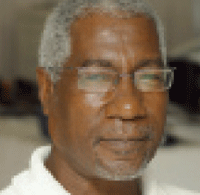
ANOTHER strong debate rages on following last week’s live-streamed massacre of 50 Muslims at two mosques in New Zealand about the extent to which the Internet is being used for bad and what to do about it.
Facebook says that within 24 hours it pulled down 1.2 million of 1.5 million views of the shared video after it went viral, but has come under serious sustained pressure for not having done so fast enough.
The big IT companies argue that it’s virtually impossible to pullback what’s already gone viral, or to stop the internet from being used for sinister purposes.
However, all arguments aside, its evolving sophistication notwithstanding, the internet is still basically an instrument or tool — like a knife or a gun — that can be used for good or bad, so many argue against a kneejerk response that can return to haunt all users.
Many also feel the companies can do more to dwarf or erase the possibilities of abuse, arguing that posted political views considered adverse to various valued and/or protected interests are almost immediately ‘shadow-banned’ by Facebook and others.
Sir Tim Bernard Evers, who invented the internet 30 years ago, last week told the BBC he deeply regretted that a tool he developed to facilitate better communication between people is now being used for criminal and other sinister purposes.
The ongoing debate also includes the question of whether the likes of Microsoft founder Bill Gates and Facebook’s Mark Zuckerberg – and others between – have created mega hi-tech monsters with global footprints that have long gone out of their (and our) control.
There’s also growing concern, if not fear, that Artificial Intelligence (AI) has reached a stage where robots are being rewarded for ‘thinking’ — and acting — ‘smarter’ than humans.
Facebook pays heavy lip service to demands for more transparency, especially since the Cambridge Analytica scandal one year ago, when the former sold private data of 87 million of its users to the latter, which the UK-based firm used to influence regime change in different parts of the world.
A very apologetic Zuckerberg promised the US Congress last year Facebook would undertake a forensic audit of the Cambridge Analytica affair and install a new app to prevent recurrence of such ‘lapses’ — but none’s been done.
But then, history has proven repeatedly that, like clockwork, the tech companies will continue to pay lip service and make false promises to pacify critics following events like the New Zealand mass murder – until the next time.
Fact is, knowledge is not restricted only to those with good intentions.
Another inconvenient truth is that internet platforms have always played a significant and ever-increasing role in the recruiting operations of those bent on creating terror in different parts of the world.
Enticed by the glitzy trending propaganda patterned by like IT minds to suit and attract, tens of thousands of mainly young persons from nations all over the world – including the Caribbean — have over several years secretly crossed borders to join extreme militant groups in lands thousands of miles away.
The pace of technological change always outstrips generational gaps and the Caribbean region has long been outpaced in the various related global spaces and races.
Following the arrival of the internet in 1989, one of the most major concerns across the region was protecting children from pornography, with nary as much concern about its possible use to spread violent images or for criminal purposes.
But how things have changed.
Children today are at the forefront of the global IT revolution and parents – especially in developing countries — simply have no fool-proof way of keeping-up with the pace of their children’s access to and knowledge of the gadgets they live by.
The Internet of Things has brought the new technologies to everything everywhere, but still largely beyond the normal reach of older generations – so much so that children are questioning elders about what life was like before the internet.
Today’s youth and children will openly confess that they simply cannot live without being connected to the internet – or without a cell phone!
The whole world now connected by and through the information superhighway, it would be better for the future to ensure today that people everywhere not yet connected to The Net do get connected and use it to change their lives for the better.
There will always be those who will use good tools for bad.
The tech companies have the technology and ability to trace, intercept and disable such users, but will continue to stall on such actions.
As always, they continue to argue that such moves will slow-down or otherwise lesson the speed of information flow and the companies will therefore (at least in the foreseeable future) remain unwilling to adequately facilitate the growing demands for doing more to lessen the use of the internet to spread hate speech and unacceptable images.
Left to regulate themselves, the tech companies — like all others — will likely risk or sacrifice customer satisfaction on the altar of profitability.
Boeing is accused of fatally tinkering with super-sensitive security gadgetry to cut costs, while Facebook is accused of being selective in how fast it moves to stop the spread of images like that from the killer in New Zealand.
In both cases the results have been simply terrible: hundreds of lives were lost, leaving thousands on all continents mourning with bitter thoughts that better might have been done and otherwise might have been possible.
But the tech giants will most likely win in the end, as none will want to be the first to cede what they consider absolute power and all will oppose acting against their own global corporate interests.













